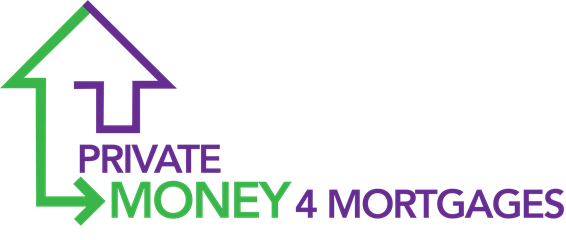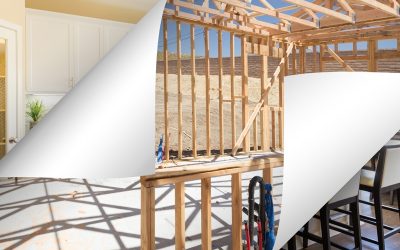Susan is here to Answer your
Frequently Asked Questions

What is a private mortgage?
A private mortgage is offered by non-bank lenders. The mortgage loan is sourced from a person, business or group of individuals.
What is home equity?
The equity in a home represents the value of the property, less total outstanding debt, that the owner actually owns outright. It is calculated by subtracting the total mortgage loan amount still owed by the property’s value
What is the difference between a traditional mortgage and a private mortgage?
There are several differences between traditional and private mortgages:
a) Interest rate – private mortgages are much higher than bank mortgages – in general, private mortgages range between 7-15%; this varies according to the lender, your circumstances, the location, the risk and the position of the mortgage ( ie 1st mortgage or 2nd mortgage)
b) Type of property and/or condition – Banks generally only want to lend on traditional properties in good condition. If your purchase falls outside their typical guidelines, you need to consider a private mortgage for the purchase.
c) Lending criteria – “A” Banks and other financial institutions have very strict criteria for mortgages based on income and debt-ratios, whereas private lenders are “equity” lenders and base most of their criteria on the property itself. They make lending decisions according to
1. “the story” behind why the funds are needed;
2.“the property” such as location, LTV, marketability;
3.and the “exit strategy“ for paying back the mortgage.
d) Term – Private mortgages are considered a short-term solution in comparison to a traditional bank funded mortgage due to their higher interest rates.
e) Payments – Private mortgages are commonly “interest-only” payments. Unlike a traditional mortgage, you won’t be responsible to pay off the mortgage principal, which allows for lower monthly payments.
f) Speed of Approval – There is generally less paperwork and documentation with a Private mortgage, and therefore a borrower would obtain financing much quicker than through a bank.
g) Credit Score – Private lenders have greater flexibility with your credit history since their primary concern is with the property.
h) Employment – sources of income ( ie . employed vs. self-employed ) is of less concern to a private lender. They look at your ability to service the loan.
When should you consider using a private mortgage?
There are many situations whereby your ability to get a bank financed mortgage is not possible, and therefore the best solution is a private mortgage. The initial conversation can start with a Mortgage Broker to understand your situation better. Once banks are ruled out as a possible solution for your mortgage needs, then consulting with someone that deals in Private Mortgages would be the next option.
Below are examples of situations whereby you might need a private mortgage:
- bruised credit
- debt consolidation
- self employment
- no income verification
- rejected by the bank
- taxes in arrears
- mortgage in arrears
- new immigrant
- home renovation
- bridge financing
- short term financing
- little or no down payment
- recent bankruptcy or consumer proposal
- real estate investors (fixNflip or BRRRR strategy)
What are the costs associated with a private mortgage?
A private mortgage has other costs associated with the loan outside of the interest rate. These include the following:
- a lender fee (usually between 1% – 3%)
- a broker fee (usually between 1% – 3%)
- an appraisal fee (approximately $400-$500 for a single family home)
- lawyer fee for the lender (approximately $1500-$2000) ** the borrower is responsible for the lender’s lawyer costs with most private mortgages.
- The monthly interest rate.
***All costs should be clearly disclosed to you before you sign a mortgage commitment. It is the law! And in fact, reputable mortgage brokers will provide you estimates well in advance, to avoid last minute surprises.
Why is a private mortgage so expensive?
A private mortgage is a “last resort” mortgage, when one cannot qualify with the banks.
These mortgages are not insured, meaning the lender must fall back on the property should a default occur.
Since these mortgages carry a much higher risk, the lender expects to get paid higher fees. Remember, that RATE is always related to RISK !
What are the terms of a private mortgage?
Private mortgages are usually a short-term solution, until the problem can be resolved, or the mortgage is refinanced at a lower rate with a bank. Typically, they range anyway between 6 months to 36 months, with the most common term being one (1) year.
Do I need an appraisal, and who pays for it?
In most cases, an appraisal is required and usually the borrower is responsible for that payment.
How to qualify for a private mortgage?
The qualifying process is much easier than with banks. The main qualifying factor for a private mortgage is with the property itself. Private lenders will typically look at 4 areas:
- Equity in the property
- Details of the property ( location, loan to value ratio, marketability )
- Borrower’s ability to service the loan
- Credit scores – bruised credit is fine, but a higher credit score can influence a better interest rate
** You can start your application process right from our website
Is there a minimum credit score for a private mortgage?
There is no minimum credit score with a private mortgage. The lender looks at the entire story, the property and the exit strategy. The decision to lend is based on a “common sense” approach, with the actual credit score only being one part of the qualifying factors.
What are the Pros and Cons of private mortgage loans?
PROS:
- Fast approval
- Easy to qualify
- NO stress test required
- Good for debt consolidation
- A valuable option when the bank says “NO”
- Short term loan / Bridge financing
- Poor credit score…. Not a problem
- Interest only payments , and flexible payment oprtions
- Great for “flippers” and BRRRR strategy
- Ability to purchase unconventional properties
- Good for self-emplyed with unverifiable income
- Good for new immigrants to Canada with no credit history yet.
CONS:
- Higher interest rate
- Extras fees
- Short term loan
- You risk foreclosure or Power of Sale if you cannot repay the loan
When would a private mortgage NOT be the right choice?
A private mortgage would not be the right choice if the borrower does not have a good exit strategy to be able to repay the loan at the end of the term.
What is a second mortgage and how does it work?
A second mortgage may be taken out on a home that already has a mortgage on it. The funds accessed through a second mortgage from the home’s growing equity may be used to cover other expenses, such as home renovations, but they carry more risk than the first mortgage. The second mortgage is different from a mortgage refinance. When you take out a second mortgage, you add an entirely new mortgage behind the first mortgage. You must now pay two totally separate mortgage payments monthly.
Why are interest rates higher with a second mortgage?
The lender for the second mortgage takes on more risk than the provider of the first mortgage because they would be in second position on the property’s title. If a homeowner defaults on their payments and the property is put into “power of sale “, the lender of the original (first) mortgage would be paid out first once the property is sold. The lender of the second mortgage is at a higher risk of not being paid out in full. Due to this additional risk, second mortgage rates are usually always at a higher interest rate,
Remember…. RATE is always related to RISK !
How can a second mortgage help you to qualify for a refinance at a cheaper rate?
Many people use a second mortgage to consolidate debt with a lower monthly payment. Then over the next few months you can repair your credit score and then go back to the bank to refinance at a better interest rate. Using this strategy, you can often qualify for a higher mortgage amount, and then you can also payout the second mortgage.
As a real estate investor, when do you use a private mortgage vs. a JV partner?
If the investor has the ability to finance the down payment and renovations through their own resources, it is quite often not necessary to bring in a Joint venture partner. Doing the math on both scenarios can often show that it is cheaper to use private funds rather than share the profits with a money partner.
***At Private Money 4 Mortgages , we have excellent lending programs for real estate investors, specifically geared to fixNflips and the BRRRR strategy. You can borrow against the ARV (after repair value) using only $20,000 as a down payment. Book a discovery call to learn more.
What is a Bridge Loan?
A bridge loan is a type of short-term loan that may be used to “bridge” the gap between carrying a mortgage on an existing home and covering the mortgage for a new home. These are usually obtained when the closing dates of a home sale and the new purchase overlap, requiring the seller to continue paying the mortgage on the existing home before it closes, while also paying the mortgage on the new home.
What is the BRRRR strategy for real estate investors?
The basic idea of the BRRRR strategy is that you buy a property, make improvements and then refinance the property after you increase the value. BRRRR stands for BUY / RENOVATE / RENT / REFINANCE, and if you love real estate investing and you want to own several properties, you can tack on an extra R for REPEAT. *** For more details on this strategy, please refer to our blog on the subject
How do you use a private mortgage to buy, renovate and sell ( fixNflip )?
This is a very common strategy for real estate investors. Buy a property, renovate it and then sell at an increased price.
***At Private Money 4 Mortgages, we have excellent lending programs for real estate investors, specifically geared to fixNflips and the BRRRR strategy. You can borrow against the ARV (after repair value) using only $20,000 as a down payment. Book a discovery call to learn more.
If you’re ready for Private Money 4 Mortgages to help you find the best solution
for your client, call us at 519-342-7295 to book a FREE consultation.
ON THE BLOG
What is BRRRR Real Estate Investing?
What the heck is a BRRRR anyway? Yes, it could mean you are chilly, but for real estate investors, it has a whole other meaning. The basic idea of the BRRRR method is that you buy a property, make improvements, and then refinance the property after you increase its...
What Impacts your CREDIT SCORE?
Payment History – 35% of your credit score is based on your payment history. Paying debt on time and in full has a huge, positive impact. But on the flip side, when you are late for payments, and missing payments, this has a huge, negative impact on your credit...
Mortgage TERM vs. AMORTIZATION
We hear these words often when referring to mortgages, but what do they mean and how do they work? With a proper understanding of the terminology you can save money on your mortgage. So let me show you what I mean….. Term vs. Amortization…These two different words...
Subscribe to Our Private Money Mortgages Newsletter Today and Stay Updated
Connect With Us On Social Media



